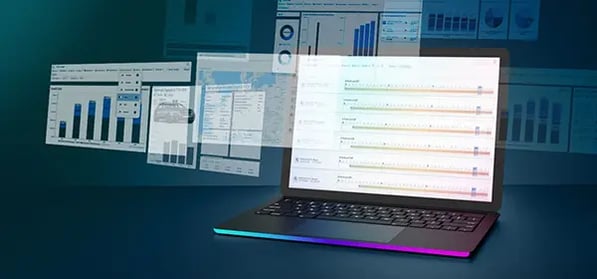2 min read
The 10 Biggest Game Changers in Automotive Supplier Sales Over the Last 25 Years
 Erik Reiter
:
Updated on October 6, 2024
Erik Reiter
:
Updated on October 6, 2024
The automotive supply industry has changed fundamentally over the last 25 years - and not just because ties have become increasingly rare. From groundbreaking technological developments to changes in global markets, here are the 10 biggest game-changers that have redefined sales strategies and shaped success in this highly competitive industry.
1. Globalization of the market
Change: 25 years ago, globalization in the supplier sector was still a challenge. Today, it is standard for suppliers to operate worldwide, from China to America.
Lesson learned: Successful companies have optimized their global presence to gain a competitive advantage. Sales must think globally and understand the specific requirements of each market.
2. Exploited opportunities to shift to low-cost - more focus on sales performance
Change: The relocation of production from Western Europe to Eastern Europe or North Africa and from the USA to Central America has been characteristic in recent decades and is now standard. Differentiation is hardly possible anymore.
Lesson learned: Cost efficiency alone is no longer enough. Sales must generate competitive advantages through absolute professionalism in all areas. Above all, this includes active claim management, profit-oriented change management, transparency and error-free price management.
3. Rise of China in the automotive industry
Change: China's share of the global market has grown from 3% to 30% in the last 25 years.
Lesson learned: The Chinese market offers immense opportunities, but also challenges. Sales strategies must be adapted locally and respond to the rapidly growing competition.
4. Challenges of e-mobility
Change: The market fluctuates between electric cars and combustion engines, which creates strategic uncertainty in sales.
Lesson learned: Flexibility in strategic planning and market observation are crucial in order to react to changes in demand in good time.
5. Less Oktoberfest, more analytics - growing compliance requirements
Change: The pressure to meet compliance requirements has increased, especially in terms of ethical behavior and transparency. In turn, client buyers are demanding more and more detail before awarding contracts or releasing funds.
Lesson learned: With this change, the requirements profile for sales employees has also changed. To put it bluntly, from entertainer to graduate mathematician.
6. Less face-to-face meetings, more digital communication
Change: Face-to-face meetings used to be the standard. Today, digital conferences and virtual meetings dominate.
Lesson learned: Increasing efficiency through digital communication is possible, but sales employees still need to build strong, personal relationships. The basis for this is still personal meetings between purchasing and sales. The focus must be on a healthy mix.
7. Volume fluctuations and uncertainties
Change: Crises such as corona, semiconductor availability and the switch to electromobility have made it drastically more difficult to forecast the markets.
Lesson learned: Transparency and flexibility are key to reacting to uncertainties. Contractually compliant quantities and a good claim strategy are essential for survival today.
8. Claim management - from the exception to the rule
Change: 25 years ago, claim management was only common practice for a few suppliers; today it is an integral part of the sales management.
Lesson learned: Claim management has developed into a decisive competitive factor. Transparency in the process, from the identification of claims to sustainable tracking and claim performance, is a success factor.
9. "Survival of the Fittest" - adaptation is the key
Change: Those who have adapted to new developments over the last 25 years still exist today.
Lesson learned: Adaptability and a willingness to innovate are timeless success factors in the automotive supply industry.
10. Digitalization of sales
Change: Today, sales processes are being digitalized and replaced by highly integrated solutions instead of relying on Excel and isolated tools.
Lesson learned: Companies that focus on true sales digitization now will continue to exist in the future. Transparency, efficiency and effectiveness in all sales processes are the decisive success parameters for the competitiveness of automotive suppliers.
Are you curious to find out how these challenges are solved in the leading solution for sales planning and sales management? Make an appointment for a live demo with Digital Automotive today!
23: Compliant Sales Processes: How Automotive Suppliers Score with Security, Transparency, and Profitability
In the dynamic and demanding world of automotive suppliers, it is no longer just the quality of the product that determines success - the processes...




